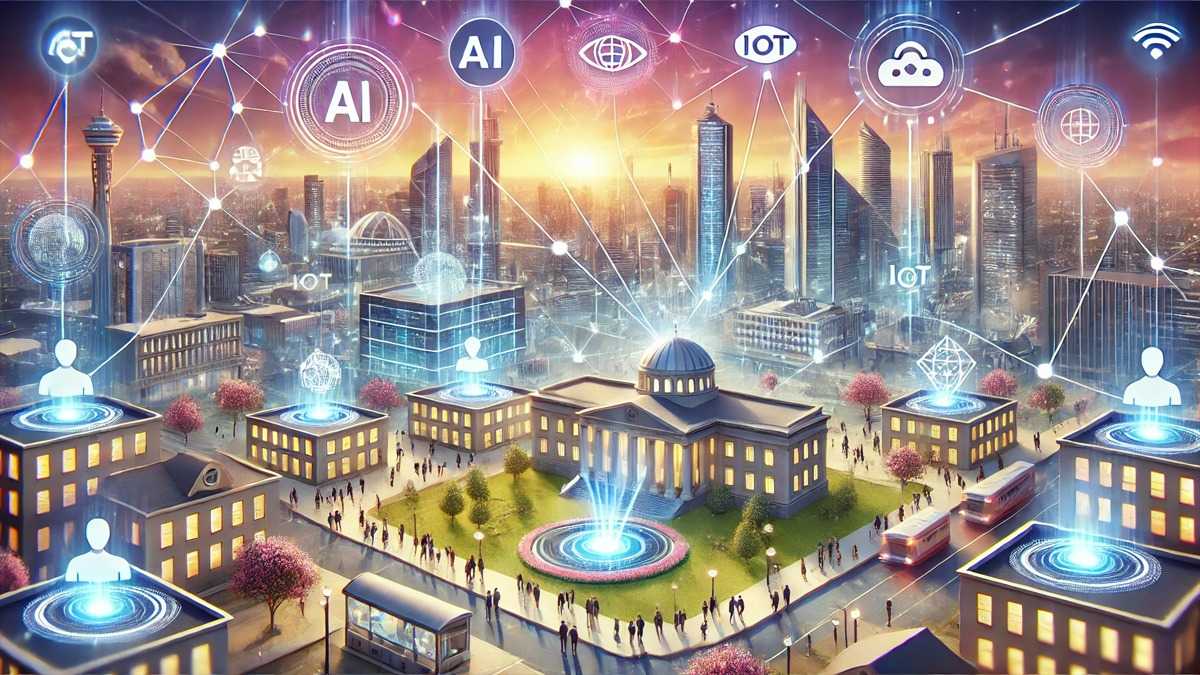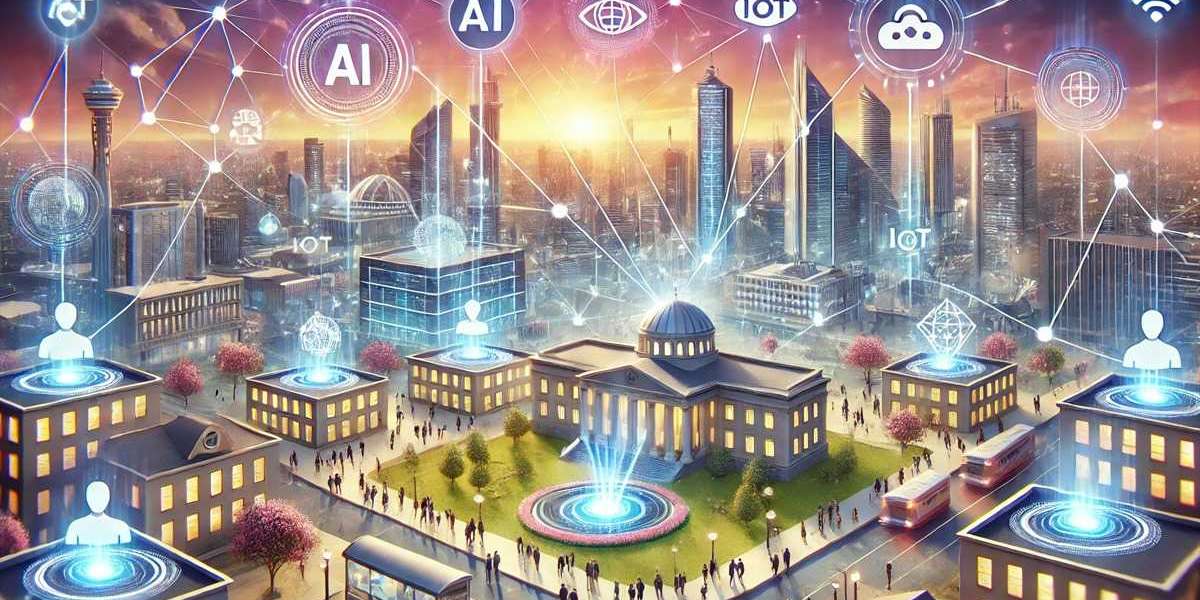
In the ever-evolving landscape of governance, the fusion of technology and data has emerged as a transformative force, fundamentally reshaping how governments operate, interact with citizens, and drive sustainable development. The phrase "revolutionizing governance" encapsulates this shift, where traditional bureaucratic frameworks are being overhauled by cutting-edge innovations. This article delves into the key ways governance is being transformed and the technologies driving this revolution.
The Need for Revolutionizing Governance
Governance, at its core, involves decision-making processes that impact societies, economies, and the environment. However, traditional governance systems often face challenges like inefficiency, lack of transparency, and slow responsiveness. These challenges highlight the urgent need for modernization:
- Increasing Transparency: Citizens demand open and accountable systems.
- Boosting Efficiency: Streamlining processes to minimize bureaucracy is critical.
- Enhancing Citizen Participation: Engaging people in decision-making processes ensures inclusivity.
The integration of technology has proven to be the game-changer in addressing these issues.
Technologies Transforming Governance
1. Artificial Intelligence (AI) for Smarter Decision-Making
AI is a cornerstone of revolutionizing governance. By analyzing massive datasets, AI enables policymakers to make data-driven decisions.
- Predictive Analytics: Governments use AI to anticipate economic trends, identify risks, and allocate resources effectively.
- Chatbots for Citizen Services: AI-powered chatbots provide instant responses to citizen queries, reducing wait times.
For instance, AI has improved urban planning by predicting traffic patterns and optimizing public transportation systems.
2. Blockchain for Transparent Transactions
Blockchain technology enhances transparency and trust in governance systems.
- Secure Voting Systems: Blockchain enables tamper-proof electronic voting, ensuring fair elections.
- Transparent Public Expenditure: Governments can track and share financial transactions openly with citizens.
Estonia, a pioneer in digital governance, uses blockchain for secure national ID systems, revolutionizing public administration.
3. Internet of Things (IoT) for Smart Cities
IoT is revolutionizing urban governance through interconnected devices that provide real-time data.
- Smart Traffic Management: Sensors monitor traffic flows, reducing congestion.
- Efficient Waste Management: IoT-enabled bins notify authorities when they need to be emptied.
Smart cities like Singapore leverage IoT to improve living standards and resource efficiency.
4. Big Data for Policy Insights
Governments collect vast amounts of data from various sources. Big Data analytics helps in extracting meaningful insights:
- Health and Pandemic Management: During the COVID-19 pandemic, data analytics tracked virus spread and optimized vaccine distribution.
- Agriculture and Resource Planning: Big Data helps in predicting crop yields and managing water resources.
Citizen-Centric Governance Models
The concept of citizen-centric governance focuses on putting people at the heart of decision-making. Here’s how this approach is revolutionizing governance:
1. Participatory Platforms
Digital platforms enable citizens to voice opinions, suggest policies, and vote on local issues. Platforms like MyGov in India have successfully engaged millions in shaping public policies.
2. E-Government Services
Governments worldwide are digitizing services for better accessibility. From filing taxes to accessing healthcare records, e-services reduce red tape and empower citizens.
3. Data Privacy and Security
With increased digitalization, governments must prioritize data security. Implementing robust cybersecurity measures builds trust and ensures safe interactions between citizens and authorities.
Global Examples of Revolutionizing Governance
1. Singapore: A Smart Nation
Singapore's government employs AI, IoT, and blockchain to create a "Smart Nation." From AI-driven healthcare to smart transportation systems, it serves as a global benchmark for innovation in governance.
2. Estonia: Digital Pioneers
Estonia's digital governance framework offers almost every government service online. Its e-residency program enables global entrepreneurs to operate businesses remotely.
3. India: Leveraging Digital India Initiatives
India's "Digital India" campaign has transformed service delivery through initiatives like Aadhaar (biometric-based digital ID) and UPI (Unified Payments Interface), making governance more inclusive.
Challenges in Revolutionizing Governance
While the transformation is promising, it is not without challenges:
- Digital Divide: Unequal access to technology can exclude marginalized populations.
- Data Misuse Concerns: Transparency can backfire without strict data privacy regulations.
- Resistance to Change: Bureaucratic inertia and lack of technical expertise slow down adoption.
Governments must address these challenges to ensure equitable and effective governance.
The Future of Governance
The future lies in further integration of emerging technologies like quantum computing, edge computing, and 5G. These innovations promise faster data processing, seamless connectivity, and enhanced security, taking governance to new heights.
Empowering Grassroots Governance
Decentralizing power through technology allows local governments to address community-specific issues more effectively. For instance, real-time data sharing between central and local authorities fosters collaboration.
Global Governance Models
Cross-border collaboration on issues like climate change, cybercrime, and public health highlights the importance of technology in global governance.
Why Revolutionizing Governance Matters
Revolutionizing governance is not just about adopting technology; it's about improving lives. Transparent systems rebuild trust, efficient processes save time and resources, and inclusive platforms empower every citizen. As technology continues to advance, it holds the key to creating governance systems that are resilient, adaptive, and focused on the greater good.
Governments must stay ahead of the curve by embracing innovation and fostering a culture of collaboration between the public and private sectors. The journey toward revolutionizing governance is one of constant evolution, driven by a shared vision of progress and equity.
In conclusion, revolutionizing governance is essential for creating systems that meet the demands of the modern world. By leveraging technology and prioritizing citizen engagement, governments can build a sustainable and inclusive future. The question is no longer if governments should embrace this transformation but how quickly they can adapt to unlock its full potential.
Content source - https://tagbintechnews.blogspot.com/2024/11/revolutionizing-governance-role-of.html







